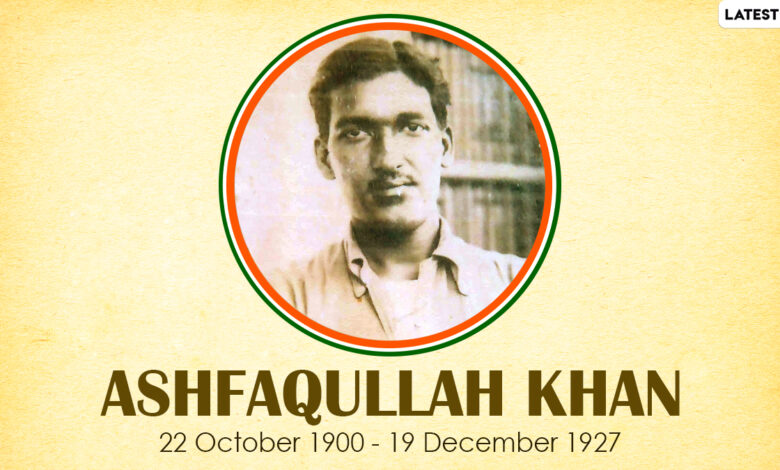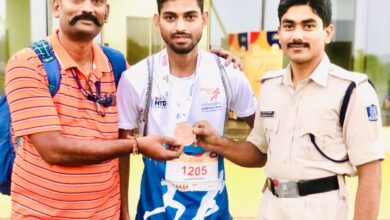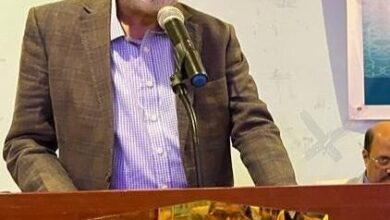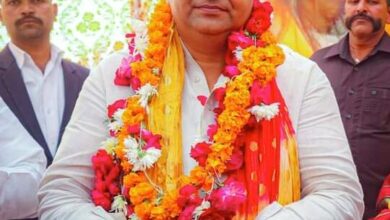Remembering Ashfaqulla Khan: Legendary Kakori martyr, freedom fighter and poet
Ashfaq, as he was referred to by family, friends and co-revolutionaries, was born on this date in the year 1900.

Ashfaqulla Khan, a prominent freedom fighter and revolutionary, was born on October 22, 1900. The place of his birth was Shahjahanpur, the town located in United Province (present-day Uttar Pradesh) in British India. Ashfaqulla belonged to a Pathan family, and he was the youngest of the six children of Shafiqullah Khan and Mazhar Unisa. Ashfaq, as he was referred to by close friends and family members, was a devout Muslim and was only 27 years old when he sacrificed his life for the nation. On Ashfaqulia’s 120th birth anniversary, images and wallpapers which can be used to pay tribute to him have been shared below.
In 1922. Ashfaqulla Khan participated in the Non-Cooperation Movement which was launched by Mahatma Gandhi in 1920. Mahatma Gandhi called-off the movement after the Chauri Chaura incident in 1922. Ashfaqulla Khan was disappointed after the withdrawal of the movement. He then decided to form an organisation with like-minded people, this resulted in the formation of Hindustan Republican Association in 1924. The main objective of the organisation was to organise armed revolution against the British and achieve freedom.
In the decade following Mahatma Gandhi’s non-cooperation movement, that was called off mid-way when participants indulged in violence, the motherland saw the rise of an array of young patriots who were keen to sacrifice themselves for the noble cause of freedom. One among such revolutionaries was Ashfaqulla Khan, who laid his life for the nation at the young age of 27. The date of October 22, 2021, marks his 121st anniversary.
Ashfaq, as he was referred to by family, friends and co-revolutionaries, was born on this date in the year 1900. Active in public life since his days of education, he emerged as a staunch revolutionary after joining the Hindustan Republican Association.
To give momentum to the revolution and buy arms and ammunition, Ashfaqulla Khan with other revolutionaries planned to loot government treasury carried in the trains. On August 9, 1925 Ashfaq with Ram Prasad Bismil, Chandrashekhar Azad and other freedom fighters. fighters of Hindustan Republican Association looted the British train carrying government money in Kakori near Lucknow. All the revolutionaries were arrested within one month of the robbery, however Ashfaq remained untraced by the police. He went into hiding and moved to Banaras Ashfaqulla Khan was later arrested on July 17, 1926 after a friend betrayed and informed British police of his whereabouts.
Here are five lesser known facts related to him:
- Ashfaq was the youngest among six children of Shafiqur Rahman and Mehrunnisa. The family was Pathan by ethnicity, and were devout Muslims.
- In his early 20s, Ashfaq emerged as an effective writer. He efficiently used both the languages of Urdu and Hindi – spoken by the majority of the population in North India. Varasi and Hazarat were the pen names used by him.
- Ashfaq’s firm belief in a revolutionary struggle, claim historians, was triggered by the end of the non-cooperation movement by Gandhi due to the Chauri Chaura incident. He was dejected by the Mahatma’s decision to call off the protests due to violence, despite the fact that it had evoked mass participation in most parts of the nation.
- Ashfaqulla was highly inspired by his guide and friend Ram Prasad Bismil. The two were part of the group of revolutionaries who were involved in the Kakori train conspiracy case.
- Khan and Bismil, who shared the same vision of a free India, who were equally passionate about Urdu, and were part of the same Kakori mission, also ended up being martyred on the same day. Both of them, lodged in different jails, were sent to the gallows on December 19, 1927.
The cause for which Ashfaqulla was martyred was achieved 20 years after he departed from this world. The hold of the British regime in India finally weakened, and the colonial power was forced to cede its control over the entire territory in 1947.





